Today, I am looking at some of the best libraries for Go programming language that is simple, reliable and easy to build, has in store for developers out there.
Let’s have a look at them, shall we?
Go programming language is a sturdy and general-purpose programming language. Go programming language is as useful as its documentation.
1. Go Kit
Go Kit is Github’s popular library for Go-related micro-services. Go language is a general-purpose programming language but Go Kit brings in specialized support for micro-services in Go.
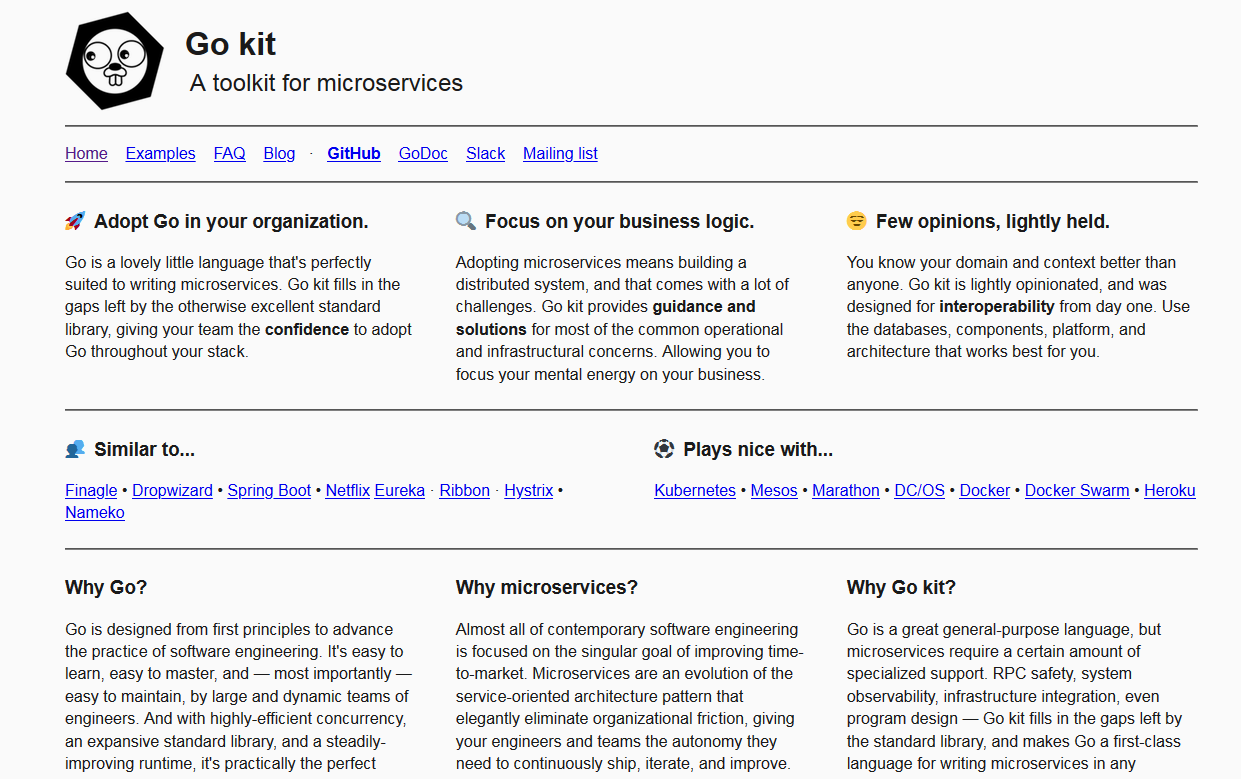
Go Kit is meant to fill the gap for functions such as RPC safety, infrastructure integration, system observability, and program design.
Go Kit helps developers adopt microservices by providing guidance to building distributed systems that bring solutions to common problems.
Go Kit being lightly opinionated, it can be adapted easily by developers to fit their own situations easily with its out-of-the-box interoperability.
2. GORM
GORM is a developer-friendly tool used for converting data between incompatible type systems.
GORM achieves its goals with its RAW SQL and SQL Builders, the extensible plugins for complete customization and auto migration tools.
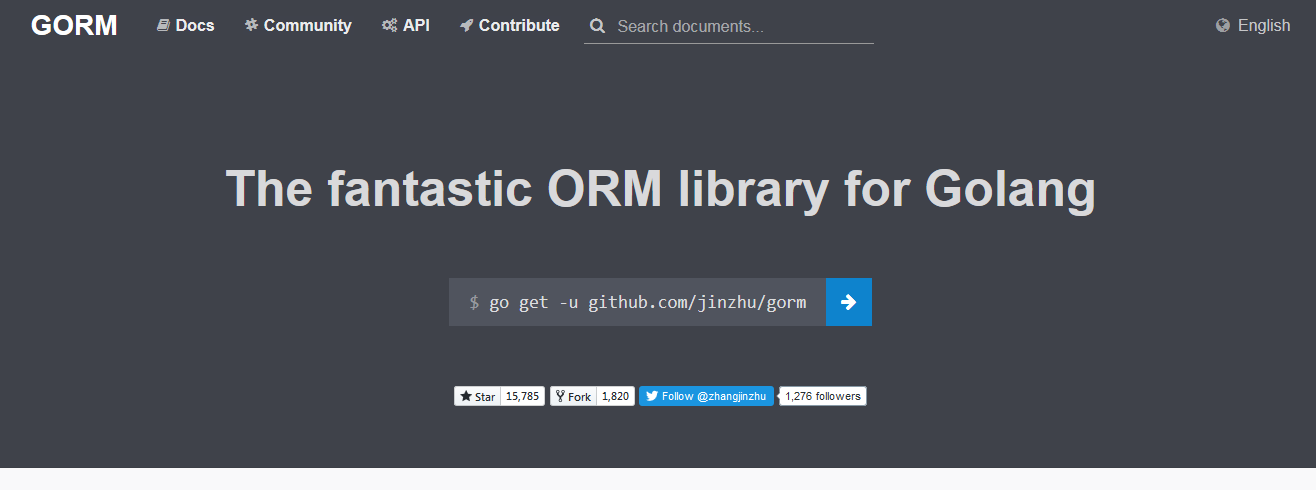
Every feature of GORM comes with its tests so that it can be easy for developers to try something new out of curiosity without borking the whole system.
Other Features:
- Full-featured ORM
- Associations
- Hooks
- Preloading
- Transactions
- Composite primary key
- SQL Builder
- Auto migrations
- Logger
- Extendable, write plugins based on GORM callbacks
- Every feature comes with tests
- Developer-friendly
3. cli
cli is a simple and fast package for building command-line apps for Go.
CLI allows developers to build their own expressive command-line apps.
cli makes creating flags easy, for example, bash-completion routines and generated help texts.
Other Features:
- Simple, fast and fun
- Distributable command-line apps
4. Vegeta
Vegeta is a versatile tool used for HTTP load testing. It was designed particularly for testing HTTP services with a constant request rate.

It works great if you want your program to perform analysis for weak points in your program. One of the libraries for Go that does workout to improve its own performance.
Other Features:
- Load testing capabilities
- Versatility
5. fuzzy
fuzzy is a dependency-free Go library meant to help match fuzzy strings. It is particularly optimized for file names and code symbols. fuzzy provides speedy and intuitive matching within milliseconds.
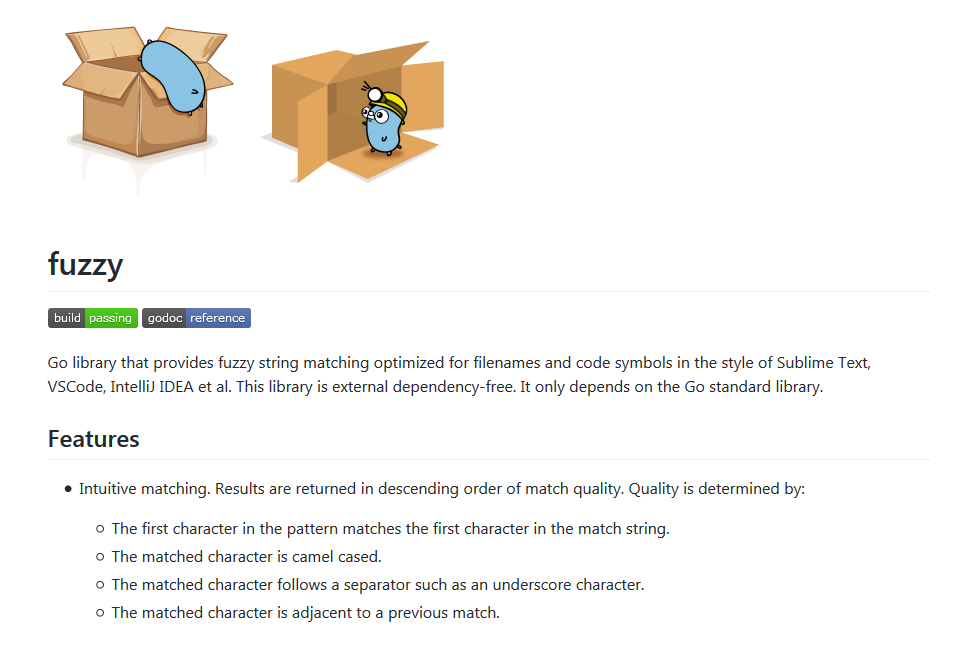
Other Features:
- Unicode aware
- Speedy and intuitive
- Can parse VScode, IntelliJ IDEA, Sublime Text and more.
6. Authboss
Authboss is a modular web authentication system, a library for Go. It has several authentication and authorization modules common in websites for you to choose from and leave out the rest. It is an easy way to implement authentication and authorization in your web systems.

Other Features:
- Time saver
- Bug fixing
- Integrates with or without web frameworks.
7. Image
Image is a library the implements a 2D image package that contains colors described.

The values of the Image interface are created by calling functions like NewRGBA and NewPalleted.
import_"image/png".
8. Time
Package Time provides functionality used to measure and display time. It always assumes a Georgian calendar with no leap seconds.
Features:
- Easy to implement
- Compensates the 20 milliseconds on the fly
code
start := time.Now() ... operation that takes 20 milliseconds ... t := time.Now() elapsed := t.Sub(start)
9. gg
gg is a tool in Go programming used to manage Golang projects.
Features:
- create isolated Golang environment
- get $GOPATH
- create makefile template and directories
gg commands
// add gg file
$ gg setenv
// shell with env environment
$ gg env
// exec command in gg env
$ gg env make | gg getpath ...
// echo $GOPATH
$ gg getpath
// echo $GOROOT
$ gg getroot
// git clone libs defined in the gg file
$ gg get
// git command for a repo id
$ gg git logrus git status
// make file template
$ gg make
// create directories - dist/src
$ gg mkdirs
10. mgo

mgo is a library for go programming language. It is a MongoDB driver that implement a rich and well-tested selection of features under a simple API standard for Go idioms
Features:
- Easy-to-use and superior performance
- Faster and actively maintained
- Failover management
- Synchronous & concurrent
- Result pre-fetching
- Flexible serialization
- GridFS support
- Thoroughly tested
- Authentication support with pooling integration
- Trivial consistency level management
11. Builtin
Builtin is one of the best libraries for Go programming that provide documentation for predeclared identifiers in Go.
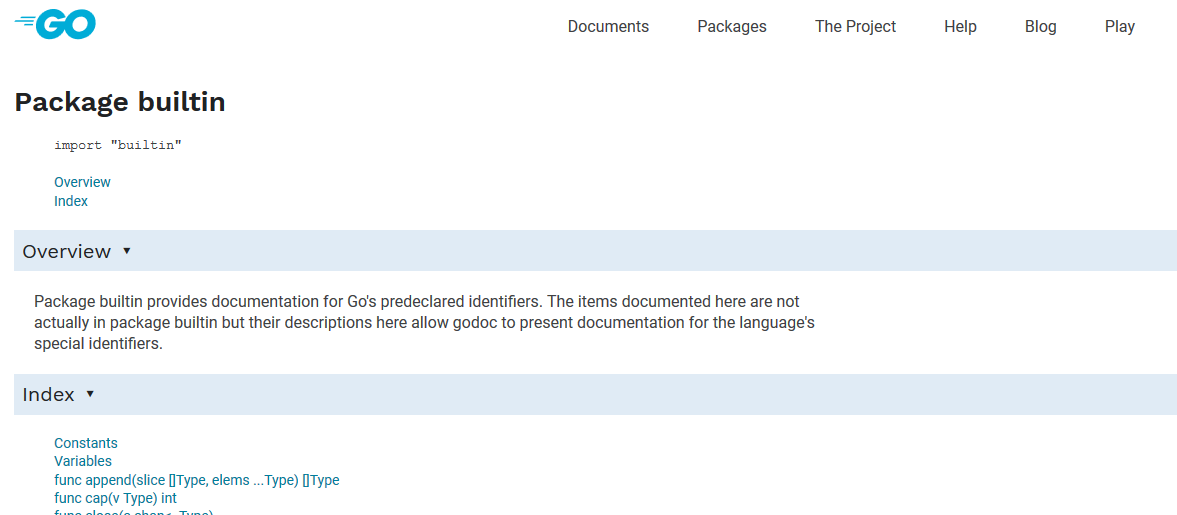
Its builtin descriptions allow godoc to present documentation for the special identifiers in Golang.
12. Scanner
Scanner implements a scanner for the source text, a library for Go programming that is cool.
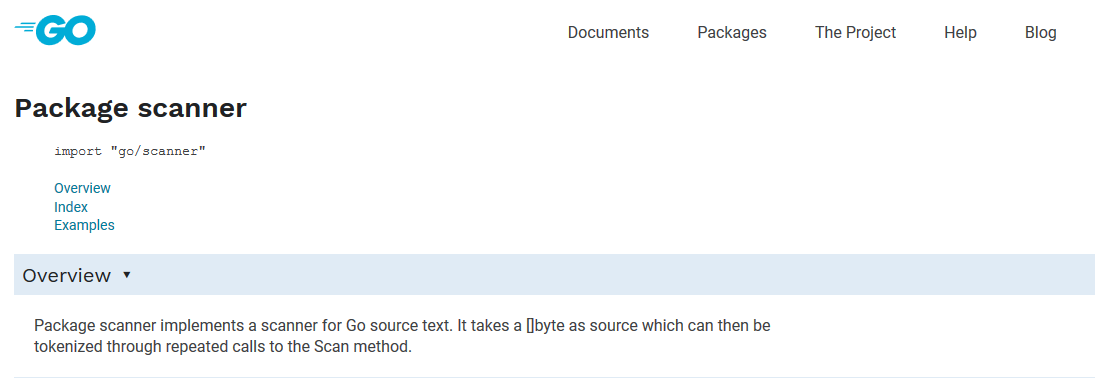
It takes each byte as a source which is then tokenized through calls related to the scan method.
import "go/scanner"
13. http – (Library for go )
http is a package that provides HTTP client & server implementations. “Get, Post, Head, PostForm make the HTTP(S) requests”
14. Anaconda/ChimeraCoder
Anaconda is a client library for Go programming in the Twitter 1.1 API.
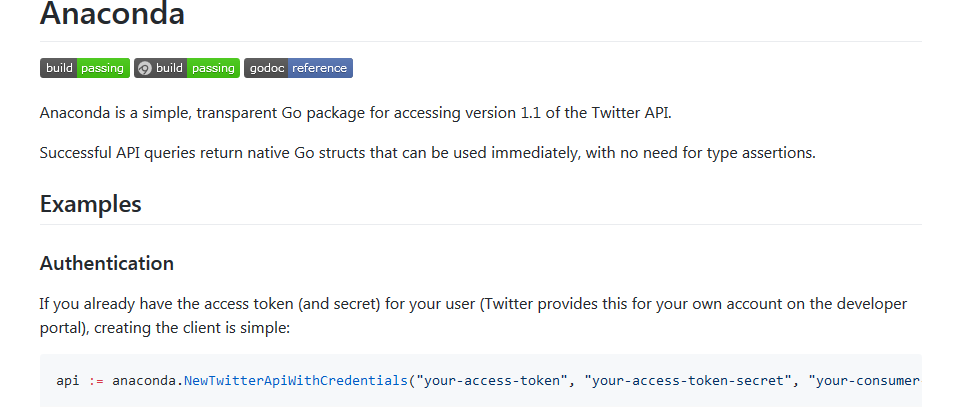
Successful API queries return native structs that could be used immediately without the need for type assertions.
other Features:
- Error handling
- Query queue persistence
15. Ebiten – A dead-simple 2D game library for go programming
Ebiten is an open-source game library for developing 2D games with a simple API for multi-platforms in Go.
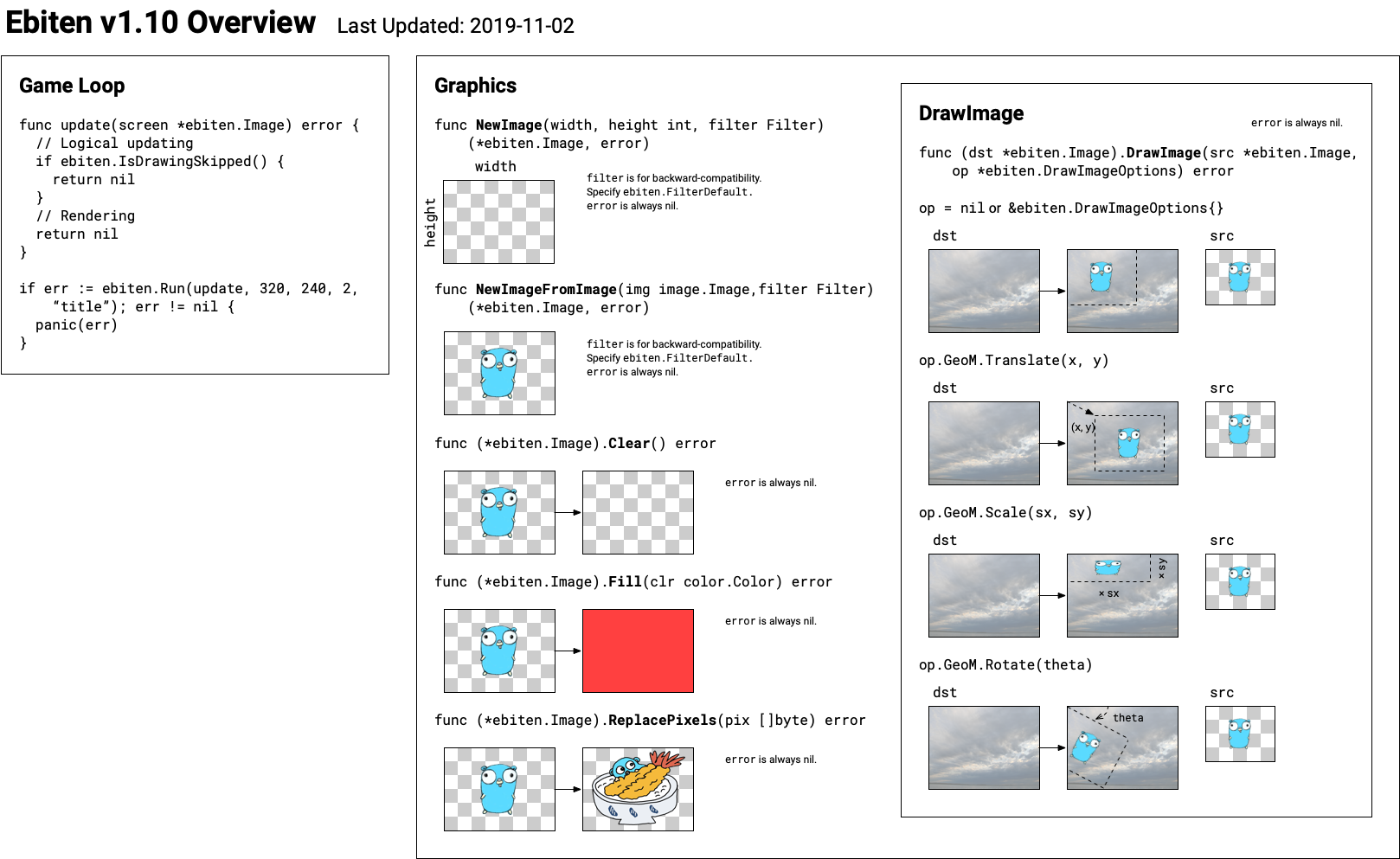
Other Features:
- 2D graphics
- Input (keyboard, mouse, gamepads, touches)
- Audio support (Ogg/Vorbis, WAV, MP3, PCM)
Conclusion
There is plenty of packages or libraries for Go programming that supports developers in the production of application programs.
As I said earlier that a programming language is only as good as its documentation, Go isn’t an exception.
It has a rich library and packages that make programming in Go seamless. Feel free to give a suggestion of a library that you feel needs to be on the list. Thank you.

